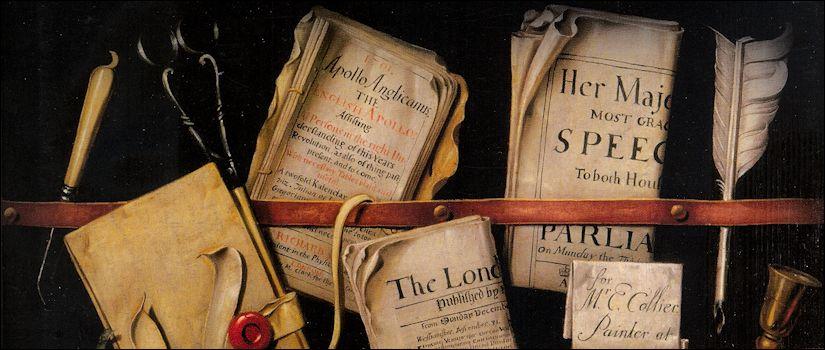Michael's book, The Invention of English Criticism, 1650-1760, delivers a lively account of the ways in which literary criticism developed through the mid-seventeenth to the mid-eighteenth centuries.
Early literary criticism was undisciplined. Unlike the staid essays and monographs of later academic scholarship, English criticism first appeared in the contentious world of the London theater: dramatists and other poets argued about their craft in contending prefaces and dedications, and their disputes spilled into the public sphere in pamphlet wars, mock epics, lampoons, and even novels. Across these forms, criticism was personal, political, and unconcerned with analysis for its own sake. Yet this unruly discourse laid the groundwork both for modern literary criticism and for the discipline of literary studies. The Invention of English Criticism explores the earliest uses of criticism and the attempts by some to convert a field of literary debate into an archive of useful knowledge. Criticism's undisciplined past thus illuminates its contested, ambivalent, and never fully disciplined present.
---
"In The Invention of English Criticism Michael Gavin addresses an important subject
with a shrewd awareness of traditional interests of literary study; contemporary concerns
with the continuities of oral, written and printed media; and a current appreciation
of the ways in which gender issues trouble and complicate the broad literary marketplace
of the Restoration and eighteenth century. The book features a wide variety of literary
players and sites, and deploys a welcome mixture of literary genres to rewrite the
history of English critical discourse in an altogether compelling way: a book of significant
argumentative reach and of impressive critical and historical sophistication."
Steven Zwicker, Stanley Elkin Professor in the Humanities in Arts and Sciences, Washington
University, St Louis
"Imbued throughout with an awareness of our own media shift, Michael Gavin's elegant
book is a significant advance in the history of criticism that synthesizes earlier
accounts with the latest research into the material history of the book, the development
of the public sphere, and the contribution of women writers."
Marcie Frank, Professor of English, Concordia University, Montreal
